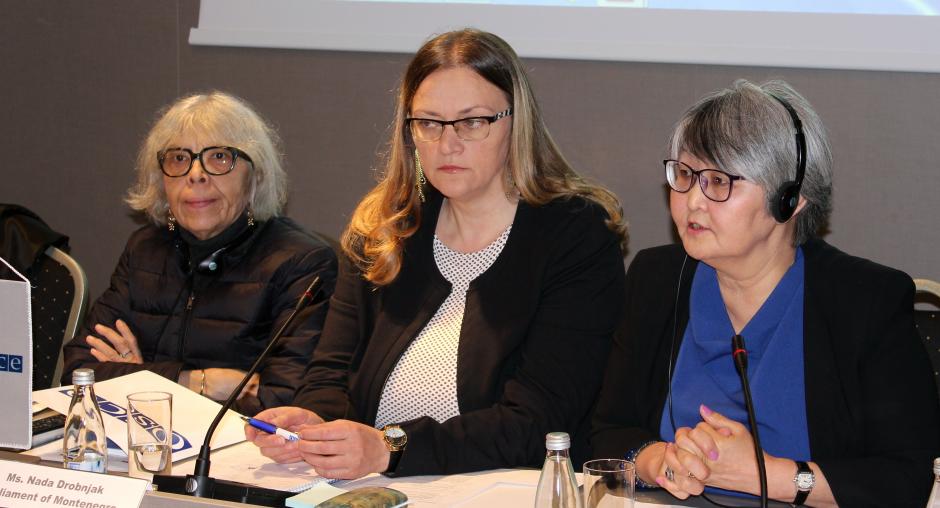OSCE Mission to Montenegro marks ten years of co-operation in gender equality programmes

The OSCE Mission to Montenegro organized a conference, on 11 and 12 December 2017 in Podgorica, to mark ten years of co-operation between the Montenegrin Ministry of Human and Minority Rights, municipalities and the Mission in developing programmes to support gender equality in municipalities across the country, as formalized through a series of memoranda of understandings.
"Over the past ten years, this co-operation enabled the Mission and the Ministry to work in partnership,” said Head of the OSCE Mission to Montenegro Maryse Daviet. “Partnership with the municipalities in the area of economic empowerment, participation of women in public and political life, development of strategic policy documents as well as support to the establishment of the network of municipal focal points and its capacity building proved its purpose."
In celebrating ten years of partnership, the Mission welcomed the OSCE Gender Senior Adviser, Amarsanaa Darisuren, who opened the event and reflected on best practices in the OSCE region.
"I commend Montenegro for the progress it has achieved in gender equality; nevertheless, challenges remain, as equality requires changing social norms. The OSCE stands ready to continue to support the Government in its actions.”
The Minister of Public Administration, Suzana Pribilović, emphasized that equal participation of men and women represents the essence of all public policies in each democratic society. "It is very important that Montenegro has defined the national normative framework in this area. It is reassuring that the country is witnessing a steady increase of women in decision making positions."
During the event, three working documents were presented and discussed: the analysis of the effects of signing memoranda; a handbook for municipal officers on gender mainstreaming and a draft model local action plan. The documents provide an overview of the current situation at the local level, including best practices and recommendations.
The conference brought together national stakeholders from government, local level and civil sectors, who reiterated the importance of working on gender equality at the local level. A special emphasis was put on gender responsive budgeting, monitoring and reporting, as well as the need to strengthen support at the political level and to raise youth awareness.
The Mission and the Ministry of Human and Minority Rights will focus on identifying how to further support the network of gender focal points, to discuss the draft local action plan and to identify the main challenges ahead. Conclusions of the two-day event will be shared with the main stakeholders.
